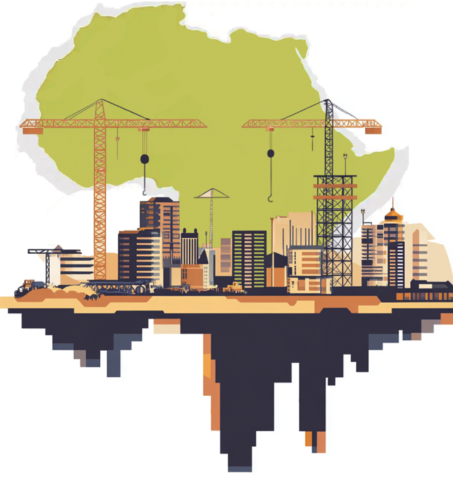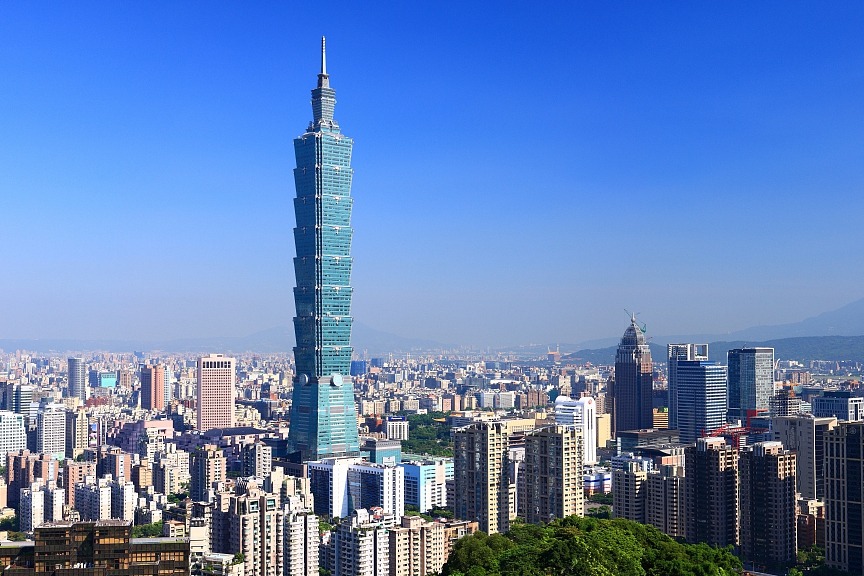Together despite US narrative


The China-Africa partnership's success will depend on its ability to transcend external interference and deliver concrete results that improve the lives of millions
As Donald Trump is to assume his second term in office on Jan 20, the global geopolitical landscape is increasingly being defined by great power competition. Africa has become a significant arena for this rivalry, particularly in the contest between the United States and China. Central to this dynamic is the enduring partnership between China and Africa — a relationship that has weathered sustained external criticism and pressure, particularly during Trump's first term. Moving forward, both China and Africa must navigate an intensified environment of competition, leveraging their shared history, comprehensive strategies and mutual benefits to strengthen their partnership and achieve common goals.
Trump's first term brought a mercantilist approach to US foreign policy, marked by sporadic engagement with Africa. His administration frequently cast China's presence on the continent in a negative light, advancing narratives of "debt-trap" diplomacy and alleged exploitation of African resources. These claims were amplified by Western media and policy circles, portraying Chinese investments as predatory rather than constructive.
However, these critiques ignore the substantial benefits that Chinese partnerships have brought to Africa. Unlike Western aid, which is often tied to conditional strings regarding governance or political reforms, China's model emphasizes respect for sovereignty and aligns with Africa's own development priorities.
Far from the "debt trap" claims, Chinese loans and investments have helped address Africa's longstanding infrastructure deficits. Projects such as Kenya's Standard Gauge Railway, Ethiopia's industrial parks and Nigeria's hydropower facilities have created vital economic lifelines. Studies by organizations such as the Jubilee Debt Campaign have debunked the idea that Chinese loans dominate African debt burdens. In most cases, African debt crises stem from Eurobond markets and domestic financial mismanagement rather than Chinese financing. Furthermore, China has shown flexibility, restructuring or forgiving loans when needed, as evidenced during the COVID-19 pandemic when it provided debt relief to several African nations.
Washington is likely to ramp up its efforts to frame Chinese influence as a challenge to Western values and African sovereignty. For African nations, this competition presents risks of polarization and external interference. Yet, it also offers an opportunity to leverage the rivalry for greater investments and favorable terms. The key lies in maintaining agency, ensuring that partnerships with either power align with Africa's long-term development goals.
China's ability to sustain its strong ties with Africa will depend on its continued focus on initiatives such as the Global Development Initiative, the Global Security Initiative and the Global Civilization Initiative. These frameworks address Africa's most pressing challenges, such as poverty eradication, peace and security, and cultural exchanges. The Global Development Initiative, for example, complements Africa's Agenda 2063 by prioritizing industrialization, food security and poverty reduction. The Global Security Initiative's focus on peacebuilding is particularly relevant in conflict-prone regions such as the Sahel region and the Horn of Africa, while the Global Civilization Initiative fosters deeper people-to-people connections, reinforcing the cultural and diplomatic foundations of partnerships.
The accusation of Chinese "debt traps" is not the only myth that needs debunking. Critics have also painted China as an economic colonizer, a narrative that fails to recognize the transformative impact of Chinese investments on local economies. For example, Chinese-funded infrastructure projects often involve significant local labor and capacity-building components, creating jobs and transferring skills to African workers. Initiatives such as the Luban Workshop, a project named after an ancient Chinese master craftsman that provides vocational skills training for African youth, exemplify China's commitment to empowering local communities.
This non-prescriptive approach to development resonates deeply with African leaders. Unlike Western models, which frequently impose governance reforms or ideological frameworks, China respects the sovereignty of its African partners. This respect is not synonymous with indifference, however. African leaders have highlighted their ability to negotiate terms that meet their national priorities, ensuring that the benefits of partnership are mutually shared. For example, Ethiopia has leveraged Chinese investments to develop industrial parks that align with its manufacturing-led development strategy, while Rwanda has utilized Chinese technology to enhance its e-governance systems.
At the same time, Africa has much to gain by replicating aspects of China's development trajectory. Over the past four decades, China has lifted over 800 million people out of abject poverty through a strategic focus on infrastructure, education and agricultural modernization. These experiences offer valuable insights for African countries seeking to address poverty, inequality and underdevelopment. Adapting these strategies to local contexts can help African nations accelerate their progress toward the United Nations Sustainable Development Goals.
Beyond infrastructure and economic development, China and Africa must collaborate on emerging challenges such as climate change, digital transformation and public health. Africa's vulnerability to climate change necessitates investments in renewable energy and sustainable agriculture — areas where China has significant expertise. Similarly, bridging the digital divide through investments in information and communications technology infrastructure can position Africa as a competitive player in the global digital economy. The COVID-19 pandemic also underscored the importance of health cooperation. China's support for vaccine distribution and the establishment of the Africa Centres for Disease Control and Prevention highlights the potential for deeper collaboration in strengthening healthcare systems.
Trump's second term poses a test for the resilience of China-Africa relations. The intensified geopolitical rivalry will require both partners to navigate external pressures while staying focused on their shared objectives. African nations must resist being drawn into binary alignments, leveraging their partnerships with China and the US to secure the best outcomes for their people. For China, the focus must continue to remain on delivering tangible benefits, addressing misconceptions, and deepening its commitment to mutual respect and shared prosperity.
The China-Africa partnership has demonstrated remarkable resilience in the face of challenges. Its foundation lies in the principles of mutual benefit, respect for sovereignty and a shared vision for development. By building on these principles, addressing emerging challenges and remaining adaptable to changing global dynamics, China and Africa can continue to strengthen their partnership, setting an example of constructive engagement in an increasingly polarized world.
In the coming years, the partnership's success will depend on its ability to transcend external narratives and deliver concrete results that improve the lives of millions. It is a strategic alliance rooted in shared aspirations and a commitment to a more equitable global order. As great power competition reshapes the international landscape, China and Africa have the opportunity to demonstrate that cooperation, not confrontation, is the path to a brighter future. By doing so, they can not only navigate the complexities of Trump's second term but also lay the groundwork for a new era of global collaboration.
The author is executive director of South-South Dialogues, a Nairobi-based communications development think tank. The author contributed this article to China Watch, a think tank powered by China Daily. The views do not necessarily reflect those of China Daily.
Contact the editor at editor@chinawatch.cn.


































